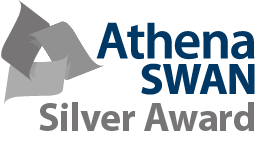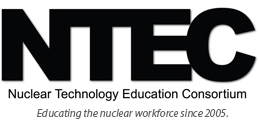MSc accreditation is further learning for candidates who hold an appropriately accredited bachelors (hons) degree, and therefore candidates who enter from other routes would not be considered to hold a degree that demonstrates in full the underpinning knowledge, understanding and skills for CEng registration and would require individual assessment for professional registration.
The NTEC MSc is accredited by:
- The Institution of Engineering and Technology (IET)
- The Energy Institute (EI)
- The Institute of Materials Minerals and Mining (IOM3)
- The Institution of Mechanical Engineers (IMechE)
Information for students who wish to be accredited by the IET: For a student to graduate with an IET accredited qualification, they will need to pass the major final project (dissertation) at the first attempt. Where a course unit comprises of coursework and exam elements, successful completion of the course unit should require a minimum mark of 40% in each element if the element contributes more than 30% to the course unit mark.
Information for students who wish to be accredited by the IOM3: Upon graduating with an accredited integrated MEng in engineering/technology, or an accredited Bachelor’s (with Honours) in engineering/technology plus further learning of an accredited Master’s, students will have fulfilled the educational requirements for professional registration as a Chartered Engineer (CEng).
Information for students who wish to be accredited by the IMechE: Students completing an IMechE accredited degree are deemed to have met part or all of the academic requirements for registration as a Chartered or Incorporated Engineer and are in a strong position to move on to achieve professional engineering status after a period of initial professional development in industry. The accredited MSc will meet, in part, the exemplifying academic benchmark requirements for registration as a Chartered Engineer. Accredited MSc graduates who also have a BEng (Hons) accredited for CEng will be able to show that they have satisfied the educational base for CEng registration. It should be noted that graduates from an accredited MSc programme that do not also have an appropriately accredited Honours degree, will not be regarded as having the exemplifying qualifications for professional registration as a Chartered Engineer with the Engineering Council; and will need to have their qualifications individually assessed through the Individual Case Procedure if they wish to progress to CEng. Further Learning details are available on our website at the following link: www.imeche.org/furtherlearning
September 2022 entry onwards
The pass mark for a postgraduate student is 50%. Compensation and condonement (or special compensation) rules are applied in certain circumstances to allow the examination board to award credit for a failed unit where the mark is between 40 – 49.
The Engineering Council has introduced a new policy restricting the number of credits that can be passed by compensation or condonement to 20 credits across the entire course of any accredited postgraduate degree programme. Each of our course units are 15 credits. This is a mandatory policy that applies to all Engineering Council accredited programmes from September 2022 entry. The Engineering Council requirements mean that options available to the Examination Board for dealing with mitigation are restricted. An accepted appeal or mitigation submission would not result in the compensation and condonement requirements being waived. Normally, you would be given a resit to allow you the opportunity to be able to continue on your accredited programme. In the event you have more than one compensated pass during your studies, you will be transferred to the unaccredited degree programme, the content and length will be the same but the degree will not be accredited.
NTEC is endorsed by the Nuclear Institute (NI).
NTEC is now a provider member with the National Skills Academy Nuclear (NSAN)

Institute of Physics Juno
The aim of Juno is to recognise and reward departments that can demonstrate they have taken action to address the under-representation of women in university physics and to encourage better practice for both women and men. There are three levels of Juno awards:
Supporter
The department starts its Juno journey by endorsing the five principles and making a commitment to work towards Practitioner and then Champion.
Practitioner
The department demonstrates that its Juno journey is well underway. Qualitative and quantitative evidence is gathered and its initial action plan demonstrates how the department aims to achieve Champion status.
Champion
The department demonstrates that the five principles are embedded throughout the department. Further evidence is gathered and its action plan demonstrates how the department will continue to further good practice. You can read more about this at https://www.iop.org/policy/diversity/initiatives/juno/index.html
Athena SWAN Charter
The Athena SWAN Charter recognises commitment to advancing women’s careers in science, technology, engineering, maths and medicine (STEMM) employment in academia. The Charter was launched in June 2005. Any higher education institution which is committed to the advancement and promotion of the careers of women in STEMM in higher education and research can apply for membership.
The beliefs underpinning the Charter are:
The advancement of science, technology, engineering, maths and medicine is fundamental to quality of life across the globe It is vitally important that women are adequately represented in what has traditionally been, and is still, a male-dominated area Science cannot reach its full potential unless it can benefit from the talents of the whole population, and until women and men can benefit equally from the opportunities it affords.
You can read more about this at: https://www.ecu.ac.uk/equality-charter-marks/athena-swan/
University of Manchester
The School of Physics & Astronomy at the University of Manchester values the diversity of all its students and staff. They are committed toequal opportunities for all and have a dedicated School Equality & Diversity committee to drive the E&D programme forwards. They currently hold an Institute of Physics Juno Champion award for gender equality and an Athena SWAN Silver award evidencing the commitment to the recruitment, progression and retention of women in the School.


University of Sheffield
The Department of Materials Science and Engineering prides itself on being a friendly and welcoming department where all members can maximise their potential, irrespective of background. They are pleased to announce our achievement of a Bronze Athena SWAN Award from May 2014.

